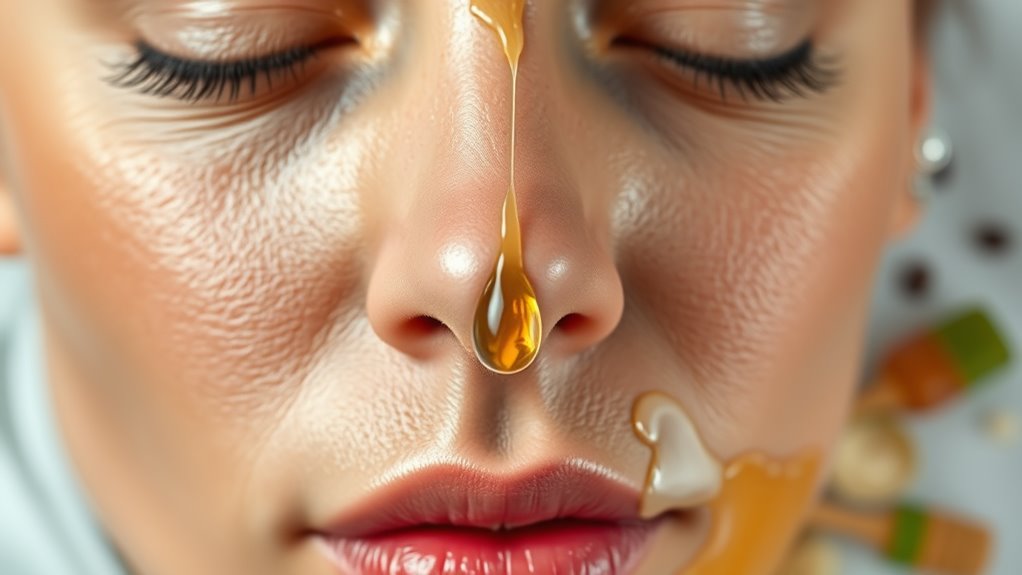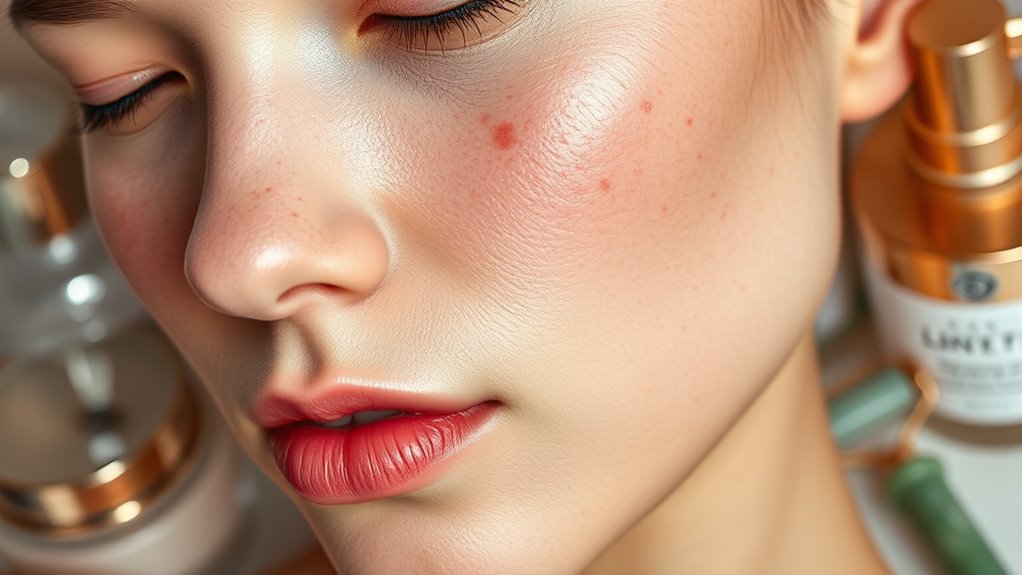Is Your Routine Causing Premature Aging. Here’s the Truth
Your daily routine might be speeding up the aging process without you realizing it. Skipping sunscreen can lead to sun damage, while poor sleep habits disrupt collagen production. What you eat matters too—diet high in sugar and processed foods contributes to inflammation. Don’t overlook hydration, as it’s crucial for maintaining skin elasticity. Even stress can play a significant role in how quickly you age. Discover more about these surprising factors that may be affecting your youthful glow.
Key Takeaways
- Skipping sunscreen exposes your skin to harmful UV rays, leading to premature aging, fine lines, and wrinkles.
- Poor sleep habits increase cortisol levels, negatively affecting collagen production and accelerating skin aging.
- A diet low in antioxidants and high in sugars contributes to inflammation, which can speed up the aging process.
- Chronic stress elevates cortisol, causing inflammation and weakening your immune system, leading to signs of aging.
- Inadequate hydration results in dry skin and the appearance of wrinkles, making you look older than you are.
The Impact of Skipping Sunscreen
When you skip sunscreen, you’re not just risking a sunburn; you’re also accelerating the aging process of your skin. UV radiation is a primary factor in premature aging causes, leading to collagen breakdown and the formation of fine lines and wrinkles.
Without proper protection, your skin’s elasticity diminishes, making it look older than it is. Even on cloudy days or indoors, harmful rays can penetrate through windows, so applying broad-spectrum SPF daily is essential. Studies show that regular sunscreen use can significantly reduce signs of aging, such as pigmentation and rough texture. By prioritizing sunscreen, you’re investing in your skin’s future, maintaining its youthful appearance while preventing the long-term damage that contributes to premature aging. Additionally, never skipping sunscreen is crucial for ensuring your skin remains protected against harmful UV rays that can lead to serious health issues.
Poor Sleep Habits and Their Effects on Aging
While you might underestimate the impact of a good night’s sleep, poor sleep habits can significantly accelerate the aging process.
Sleep is crucial for cellular repair, hormone regulation, and cognitive function. When you skimp on sleep, your body produces increased levels of cortisol, the stress hormone, which can lead to weight gain and skin aging.
Research shows that inadequate sleep affects collagen production, resulting in wrinkles and loss of skin elasticity. Additionally, chronic sleep deprivation can impair memory and cognitive abilities, making you feel older than your years. To unlock radiant skin, prioritize restorative sleep practices that promote healthier skin.
Prioritizing restorative sleep not only rejuvenates your body but also enhances your overall well-being. To combat aging, create a consistent sleep schedule and foster a relaxing bedtime routine.
Your future self will thank you.
Nutrition: What You’re Eating Matters
Sleep and nutrition are intimately connected, as what you eat can significantly influence how well you rest and how your body ages.
A diet rich in antioxidants, healthy fats, and lean proteins can combat oxidative stress, which accelerates aging. Incorporating colorful fruits and vegetables boosts your intake of essential vitamins and minerals that promote cellular repair. Additionally, certain foods like powerful anti-aging foods provide essential nutrients that can enhance skin elasticity and hydration.
Omega-3 fatty acids, found in fish and flaxseeds, support brain health and reduce inflammation.
On the other hand, excessive sugar and processed foods can lead to inflammation and weight gain, both linked to premature aging.
The Role of Stress in Premature Aging
Stress plays a significant role in the aging process, impacting both your physical and mental well-being. Chronic stress can lead to inflammation, accelerate cell aging, and weaken your immune system. It’s essential to recognize how stress manifests in your life and its potential consequences. Additionally, understanding how stress contributes to skin issues can help you take proactive steps toward maintaining your skin health.
| Stress Factors | Effects on Aging | Management Techniques |
|---|---|---|
| Work Pressure | Increases cortisol levels | Time management skills |
| Family Responsibilities | Causes emotional strain | Mindfulness practices |
| Financial Worries | Leads to sleep issues | Budgeting and planning |
| Social Isolation | Heightens anxiety | Building support networks |
| Health Concerns | Triggers chronic illness | Regular check-ups |
Overlooking Hydration in Your Daily Routine
Even though you mightn’t realize it, overlooking hydration in your daily routine can significantly impact your overall health and aging process.
Proper hydration is crucial for maintaining skin elasticity, regulating body temperature, and supporting cognitive function. Here’s why you shouldn’t ignore your water intake:
-
Skin Health: Dehydrated skin can lead to fine lines and wrinkles, making you look older than you are.
-
Joint Function: Water lubricates your joints, preventing stiffness and discomfort as you age.
-
Cognitive Clarity: Even mild dehydration can impair focus and memory, affecting your daily productivity.
Incorporating adequate hydration into your routine can help you combat these aging effects and enhance your vitality. Additionally, sleep deprivation can exacerbate skin issues, leading to a more tired and aged appearance.
Prioritize water intake, and you’ll notice a positive difference in how you feel and look.




